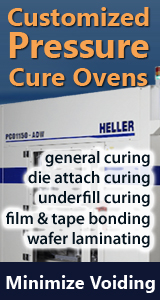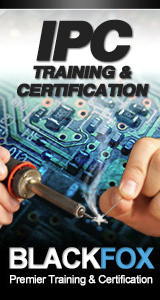Printed Circuit Board Assembly & PCB Design Forum
SMT electronics assembly manufacturing forum.
- SMTnet
- »
- Electronics Forum
- »
- Specification for Screw Torques
Specification for Screw Torques
![]() Hello Everyone,
Does anyone know if there is a specificat...
- Nov 06, 2001
by
Christopher Lampron
Hello Everyone,
Does anyone know if there is a specificat...
- Nov 06, 2001
by
Christopher Lampron
![]()
![]()
![]() Consider searching the fine SMTnet Archives to get started. ...
- Nov 06, 2001
by
davef
Consider searching the fine SMTnet Archives to get started. ...
- Nov 06, 2001
by
davef
![]()
![]()
![]() Also, check the website for Assembly magazine, ...
- Nov 06, 2001
by
MikeF
Also, check the website for Assembly magazine, ...
- Nov 06, 2001
by
MikeF
![]()
![]()
![]() I say "wank 'em down 'till they break, then next time don't ...
- Nov 06, 2001
by
Michael Parker
I say "wank 'em down 'till they break, then next time don't ...
- Nov 06, 2001
by
Michael Parker
![]()
- SMTnet
- »
- Electronics Forum
- »
- Specification for Screw Torques



.gif)



